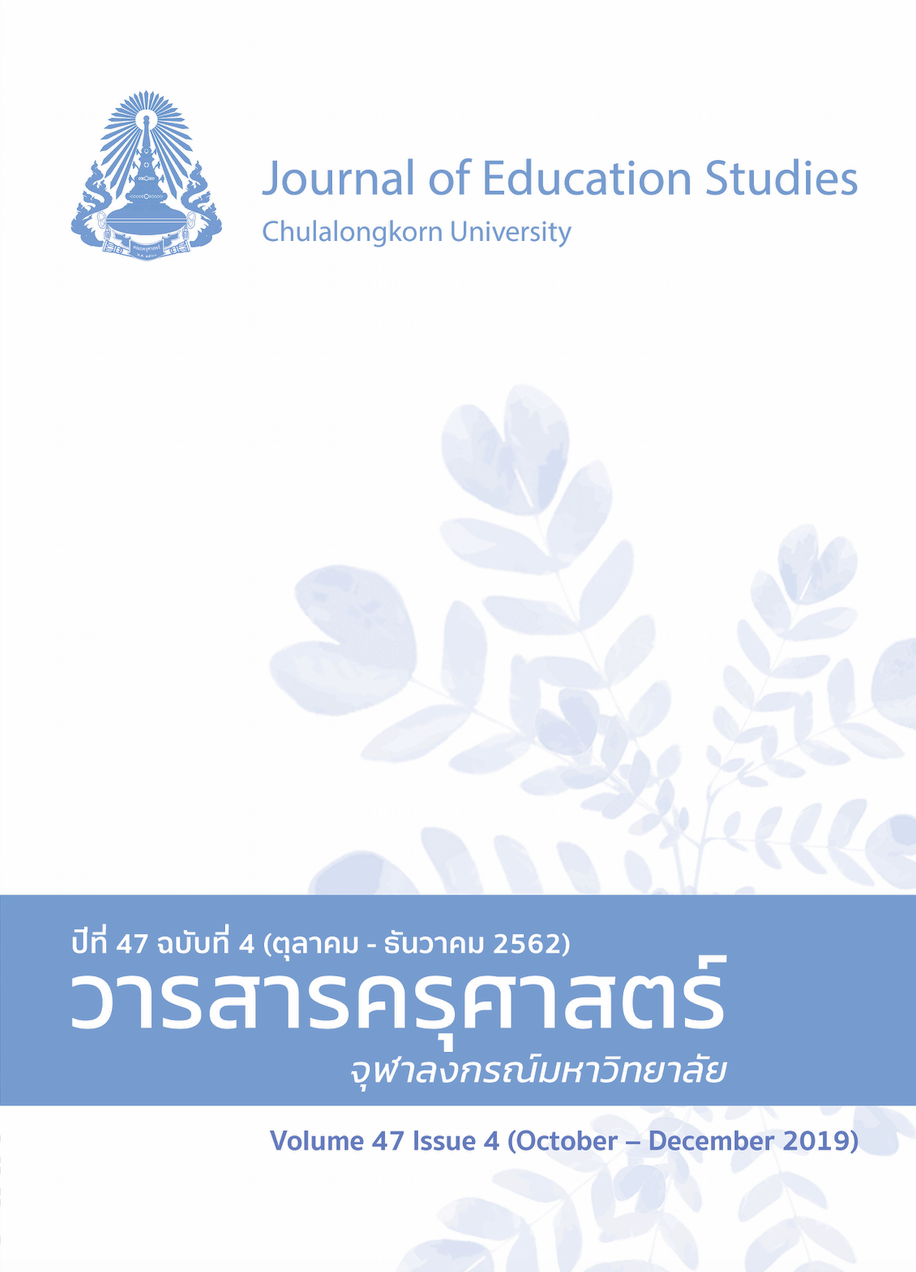Elementary Teacher Development Strategies Based on the Concepts of Self-Directed Learning and Education Provision towards Social Sustainable Development
Keywords:
TEACHER DEVELOPMENT, SELF- DIRECTED LEARNING, EDUCATION PROVISION, SUSTAINABLE DEVELOPMENTAbstract
The purposes of this research were to develop the elementary teacher development strategies based on the concepts of self- directed learning and education provision towards social sustainable development. Informants were administrators and teachers elementary school under the jurisdiction of office. Research instruments were questionnaires and evaluation form to assess the suitability and feasibility of the development approaches for primary teachers. Data were analyzed by frequency, percentage, average, standard deviation, index PNIModified and t-test and f-test, One-Way Anova.
The research findings showed that the elementary teacher development strategies based on the concepts of self- directed learning and education provision towards social sustainable development the most in order needs is strategies 1: promotion the use of mentors strategy to be elementary school teachers based on the concepts of self- directed learning and education provision towards social sustainable development; strategies 2: Enhancing coaching strategy teachers based on the concepts of self- directed learning and education provision towards social sustainable development; strategies 3: development of training teachers strategy based on the concepts of self- directed learning and education provision towards social sustainable development; and strategies 4: promotion the use of supervision strategy to be elementary school teachers based on the concepts of self- directed learning and education provision towards social sustainable development.
References
โกวิท ประวาลพฤกษ์. (2544). พัฒนาการศึกษาแท้. กรุงเทพมหานคร: สถาบันพัฒนาคุณภาพวิชาการ (พว.).
ทิศนา แขมมณี. (2545). ศาสตร์การสอน: องค์ความรู้เพื่อการจัดกระบวนการเรียนรู้ที่มีประสิทธิภาพ.กรุงเทพมหานคร: สำนักพิมพ์แห่งจุฬาลงกรณ์มหาวิทยาลัย.
พฤทธิ์ ศิริบรรณพิทักษ์. (2555). การจัดการศึกษาเพื่อการพัฒนาที่ยั่งยืน: พื้นฐานการศึกษาด้านเศรษฐกิจ สังคมและสิ่งแวดล้อม. กรุงเทพมหานคร: โรงพิมพ์ไทยสัมพันธ์.
ศิริกุล อิศรานุรักษณ์. (2549). พัฒนาการด้านอารมณ์และสังคมของเด็กวัย 6-12 ปี. วารสารสาธารณสุขและการพัฒนา, 4(2), 89-100.
ศิรินันท์ สามัญ (2547) การพัฒนากระบวนการส่งเสริมความสามารถในการเรียนรู้แบบนำตนเองของครู: การวิจัยแบบพหุกรณีศึกษา (วิทยานิพนธ์ปริญญาดุษฎีบัณฑิต ไม่ได้ตีพิมพ์). จุฬาลงกรณ์มหาวิทยาลัย, กรุงเทพมหานคร.
สุรดา ไชยสงคราม. (2556). กลยุทธ์การบริหารเพื่อพัฒนาคุณลักษณะอันพึงประสงค์ของนักเรียนประถมศึกษาในโรงเรียนสังกัดสำนักงานคณะกรรมการการศึกษาขั้นพื้นฐาน. วารสารครุศาสตร์, 41(4), 162-179.
สุวิมล ว่องวาณิช. (2550). การวิจัยประเมินความต้องการจำเป็น (Needs assessment research). กรุงเทพมหานคร: สำนักพิมพ์แห่งจุฬาลงกรณ์มหาวิทยาลัย.
สํานักงานเลขาธิการสภาการศึกษา. (2551). กรอบทิศทางการพัฒนาการศึกษา ในช่วงแผนพัฒนาเศรษฐกิจและสังคมแห่งชาติ ฉบับที่10 (พ.ศ. 2550-2554) ที่สอดคล้องกับแผนการศึกษาแห่งชาติ (พ.ศ. 2545-2559) ฉบับสรุป. กรุงเทพมหานคร: สำนักพิมพ์แห่งจุฬาลงกรณ์มหาวิทยาลัย.
ภาษาอังกฤษ
Knowles, M. S. (1976). The modern practice of adult education andragogy versus pedagogy. New York: Association.
Ontario Learning for Sustainability Partnership [OLSP]. (1996). Learning for sustainability: Essential outcomes and classroom learning strategies. Toronto: OLSP.




